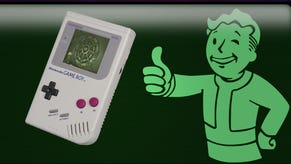NPD: America spent $3.1 billion on gaming in Nov, half of games sold on 360
NPD industry analyst, Liam Callahan has released findings of his incoming February report, that places total consumer spending across America at $3.1 billion for the month of November alone. However, physical sales have indeed dipped, but the damage isn't as bad as you might think. Get the stats below.
An excerpt of 'Q4 Games Market Dynamics: U.S. report' sent to VG247 - to be published in February next year - painted a healthy picture of the games market in November overall, but noted that some areas of American sales, such as physical console sales were down.
Of the $3.1 billion total, NPD attributed half of that figure to physical hardware, software and accessory sales - a significant figure indeed.
Callahan said in his report that while physical sales are slowing, the impact of long generational cycles can be positively significant, “It's important to compare this month’s results to November 2005, which was the last time the industry began to transition between console generations with the launch of a new platform.
"Comparing this month’s results to November 2005, retail video games sales are nearly twice as big as they were then [up] +97%. This really demonstrates the long-term health of retail sales even as many platforms are quite late in their lifecycles.
Callahan also downplayed a drop in game retail overall, suggesting that the drop was small compared to previous months, “Despite an overall retail video game decline of 11%, November had the smallest year-over-year decrease we have seen for dollar and unit sales so far this year. This is a sign of momentum going into the December holiday period.”
Software
Elsewhere in the report, Callahan revealed that software sales across the board has dropped by 14%, but that the drop was the smallest of the year - tied with August - and added that November saw 21% less titles released compare to November last year. Earlier this week VG247 theorised that the thinning release slate really does signify the impending reveal of next-gen formats.
However, Callahan noted that while there well less games out this November, those games generated close to the average receipts of last year, with dollar sales down just 11% across the board. Hits like Halo 4, Black Ops 2 - which generated $1 billion on its own worldwide in just 15 days - and strong Wii U sales in the US helped keep figures relatively high.
Callahan painted a pretty picture for Microsoft for November, “Half of the software dollars sold in November 2012 were for the Xbox 360, which gained 8 share points in overall software sales from last November."
The full report is coming in February 2013. We'll have a full idea of Q4's performance then.
Hardware
The report proclaimed that across November, hardware shares were down, but that it was the lowest drop of the year, and that Xbox 360 remained the highest-selling console in America for its 16th consecutive month.
Nintendo saw great success with the Wii U, which Callahan stated saw more dollar-sales than its predecessor did when it launched in November 2006 - a rise of 21% - and added that even though Wii U costs 35% more than the original Wii, consumers seem willing to pay more for a superior product.
PS Vita naysayers may want to hold back a little though, as Callahan suggested that Sony's handheld saw the second-highest sales month since the console launched, suggesting a resurgence of interest in the console.
What's your take on the figures? Are we in need of next-gen now, or are these numbers purely part of the usual pre-xmas rush? Speak your mind below.










.png?width=291&height=164&fit=crop&quality=80&format=jpg&auto=webp)